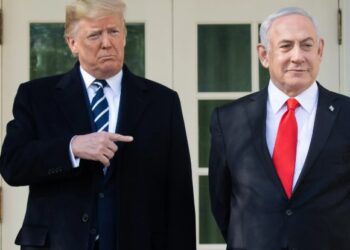In the War Room on Friday, Peter Navarro and guest journalist Adam Molon discussed the possible influence of the Chinese Communist Party (CCP) on U.S. politics through Minnesota Congressman Tim Walz. Navarro played a clip that was broadcast in Chinese to open the segment.
Navarro noted, “Adam speaks and reads Chinese fluently,” and invited him to analyze that clip from Phoenix TV, a major state-run television station based in Hong Kong.
Molon, a fluent Chinese speaker and recent addition to the War Room team, provided insights into the Chinese media narratives in general and how they might indicate a strategic preference for Walz in the American political landscape- and he referred back to the strange opening clip.
The conversation began with Navarro highlighting Molon’s expertise in Chinese affairs.
Molon explained that the Chinese commentator suggested that Walz, with his deep ties to China, could potentially soften U.S. policy towards China.
“If it weren’t for Tim Walz’s deep connections to China, maybe Harris would be harder on China,” Molon recounted from the Phoenix TV clip.
This statement indicated a favorable view of Walz from Chinese state media, which sees him as a potential asset in influencing U.S.-China relations.
Molon then delved into Walz’s history with China, revealing a long-standing relationship that dates back to 1989 when he first went to China as a teacher. He continued to visit frequently and even founded a company, Educational Travel Adventures, to take students to China.
According to Molon, “He was an international fellow at a state-run institution called the Macau Polytechnic Institute, and he started a company to take students to China.”
Molon also mentioned a letter from Congressman James Comer to FBI Director Christopher Wray, suggesting that Walz’s company was only dissolved days after he became a member of Congress, raising questions about potential conflicts of interest.
Navarro and Molon discussed the concept of “elite capture,” a strategy allegedly used by the CCP to influence foreign politicians through financial incentives and personal relationships.
“They try to get American politicians with money pots and honey pots,” Navarro stated, referring to methods such as lucrative fellowships and business deals, as well as personal relationships, to curry favor with key political figures.
Molon cited Democrat Congressman Eric Swalwell’s relationship with a Chinese spy as a comparable situation, emphasizing the risks of such influence tactics.
The conversation also touched on Walz’s stance on the U.S.-China trade war, with Molon pointing out that Walz had called for President Trump to end the trade war in 2019. Molon criticized this position, arguing that Walz does not understand that “the trade war was started by China” and has been ongoing since 1949. Navarro and Molon both suggested that Walz’s pro-China stance could undermine American economic interests, particularly in industries like steel, where Navarro emphasized the importance of standing up against “the economic aggression of totalitarian China.”
Navarro and Molon’s discussion on Friday’s War Room raised critical questions about Tim Walz’s connections to China and the potential implications for U.S. foreign policy.
The conversation highlighted concerns over foreign influence in American politics and underscored the need for transparency and vigilance in protecting national interests.
As Molon continues to monitor Chinese media and provide insights on these issues, the War Room aims to keep its audience informed about the complex dynamics shaping U.S.-China relations.
For more context, watch the full WarRoom segment from Friday’s program:


![Bannon’s WarRoom, Show Clip Roundup 10/17/2024 [PM]](https://warroom.org/wp-content/uploads/2024/10/GQ-06-Bannon-061517-350x250.webp)


